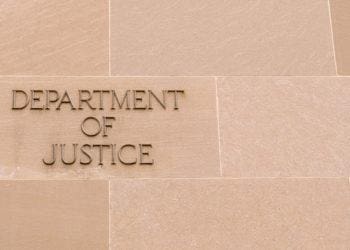Particulars of a New Trump Policy
With the “Buy American and Hire American” executive order recently signed, President Trump signaled his plans to strengthen the federal government’s procurement preference for domestic products. The order is based on the principles of “maximizing “Made in America” content and minimizing waivers and exceptions to Buy American laws. The following article by Venable attorneys Dismas (Diz) Locaria and Miranda S. Riemer analyzes the topics outlined in the order and note that new policy primarily reinforces the laws as they are written; it does not revise them.
with contributing author Miranda Riemer
On April 18, 2017, President Trump signed the “Buy American and Hire American” Executive Order. In his remarks on the executive order, President Trump said, “With this action, we are sending a powerful signal to the world: We’re going to defend our workers, protect our jobs and finally put America first.” He further stated, “We’re using every tool at our disposal to restore the American Dream. In fact, when it comes to wasteful, destructive, job-killing regulations, we are going to use a tool you all know very well — it’s called the sledgehammer.”
Despite the strong tone of President Trump’s words, the executive order itself is primarily a fact-finding exercise — a magnifying lens rather than a sledgehammer. The relevant sections of the executive order are as follows:
Section 1 of the executive order defines the “Buy American Laws” and “waivers” of those laws, in addition to reaffirming the “melted and poured” standard for steel and iron products “produced in the United States.” Without this standard, semi-finished steel could be imported from countries like China and Russia.
Section 2 of the executive order states the Trump administration’s policy to “maximize, consistent with law, through terms and conditions of federal financial assistance awards and federal procurements, the use of goods, products and materials produced in the United States.”
Section 3 of the executive order calls upon federal agencies to “scrupulously monitor, enforce and comply” with Buy American laws and “minimize the use of waivers, consistent with applicable law.” It also calls upon heads of agencies to review their compliance and waiver use internally and to develop and propose policies to maximize the use of materials produced within the United States. The Secretary of Commerce and Director of the Office of Management and Budget (OMB) are charged with providing guidance to federal agencies regarding how to conduct these reviews. At the end of the agencies’ review period (150 days from the date of the executive order’s issuance), the Secretary of Commerce and the Director of OMB must coordinate the agencies’ findings and assess their impact.
Furthermore, Section 3 provides that the Secretary of Commerce and the U.S. Trade Representative “shall assess the impacts of all United States free trade agreements and the World Trade Organization Agreement on Government Procurement on the operation of Buy American Laws.” This focus is intended to describe whether, according to the White House’s background briefing on the executive order, the United States is getting its “fair share of the global government procurement through its free trade agreement concessions” when it treats foreign suppliers like American companies. The executive order does not rescind any trade agreements or call for their renegotiation, but it does signal there may be changes down the road, especially in view of President Trump’s remarks at the executive order’s signing, where he said (for instance) that NAFTA has “been very, very bad for our companies and our workers, and we’re going to make some very big changes or we are going to get rid of NAFTA once and for all.”
Finally, Section 3 establishes a definitive time frame for when all assessments must be submitted to President Trump: within 220 days of the date of the executive order, the Secretary of Commerce must submit a report on the findings, including “specific recommendations to strengthen implementation of Buy American Laws, including domestic procurement preference policies and programs.” That report will be followed thereafter by annual reports to President Trump beginning January 15, 2019.
Section 4 states that public interest waivers must be narrowly construed “to ensure the maximum utilization of goods, products and materials produced in the United States.” Prior to granting a waiver, the agency shall account for whether “a significant portion of the cost advantage of the foreign-sourced product is the result of the use of dumped steel, iron or manufactured goods or the use of injuriously subsidized steel, iron or manufactured goods.” However, it is almost impossible to achieve a public interest without demonstrating a significant negative impact — such as safety concerns — that outweighs the public benefit of the Buy American restrictions; thus, one could say that public interest waivers are already narrowly construed. For instance, the Environmental Protection Agency (EPA) issued a decision memorandum on October 5, 2015 regarding a public interest waiver of American steel and iron requirements for natural disaster-related projects funded through Washington’s Emergency Loan Program, where the natural disaster damaged or disrupted the normal operation of small community public water systems. The EPA rationalized that a “loss of water supply or the imminent significant reduction in water availability is an immediate and critical public health threat that communities must address as quickly as possible.”
Section 6 of the executive order concludes that the executive order is not intended to impair or otherwise affect the legal authority of an executive department or agency or head thereof, the functions of the OMB Director relating to budgetary, administrative or legislative proposals, or existing rights or obligations under international agreements.
In short, the executive order reinforces the laws as they are written; it does not revise them. This is reflected in the OMB Director’s subsequent budgetary impact analysis for the executive order, in which he stated he anticipated the executive order’s implementation “would have a de minimis impact on costs and revenues to the federal government,” as well as “a de minimis impact on mandatory and discretionary obligations and outlays, as well as on revenues to the federal government, in the five-fiscal year period beginning in fiscal year 2017.”
Ultimately, the content of the executive order and President Trump’s remarks constitute a mixed bag; it is difficult to predict the outcome at this time. Regardless, while the executive order merely requires an assessment of the impacts of U.S. free trade agreements on the operation of Buy American laws, President Trump has made bold statements about modifying or ending NAFTA and signaled in his remarks at the executive order signing that “[b]ig things will be happening on trade with other countries over the coming months, and I mean very big.” Only time will tell what these “things” might be. We will keep you posted on any new developments.



 Dismas (Diz) Locaria is a member of Venable's Government Contracts Group in Washington, D.C. Mr. Locaria's practice focuses on assisting government contractors in all aspects of working with the federal government. Mr. Locaria has extensive experience assisting clients with regulatory and contract/grant term counseling, compliance (including ethics and integrity compliance), responsibility matters, such as suspension, debarment and other contracting/grant exclusions, small business matters and GSA Federal Supply Schedule contracting. Mr. Locaria also represents and counsels clients with the peculiarities of the Homeland Security Act, including obtaining and maintaining SAFETY Act protections.
Dismas (Diz) Locaria is a member of Venable's Government Contracts Group in Washington, D.C. Mr. Locaria's practice focuses on assisting government contractors in all aspects of working with the federal government. Mr. Locaria has extensive experience assisting clients with regulatory and contract/grant term counseling, compliance (including ethics and integrity compliance), responsibility matters, such as suspension, debarment and other contracting/grant exclusions, small business matters and GSA Federal Supply Schedule contracting. Mr. Locaria also represents and counsels clients with the peculiarities of the Homeland Security Act, including obtaining and maintaining SAFETY Act protections. 








